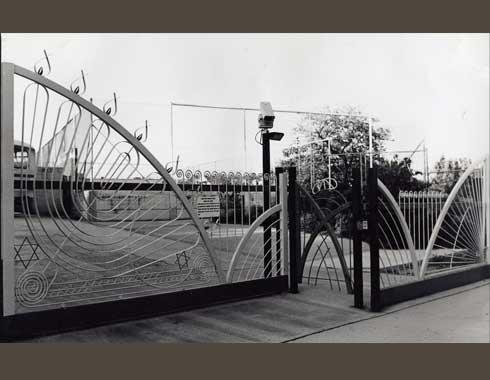UPDATES
Toulouse school’s decision to cut security may have implications on Australia
March 27, 2012 | Daniel Meyerowitz-Katz

In this post last month, I argued that the Jewish community in Australia does have the unfortunate need for security at Jewish schools, which remain a target for terrorists, a statement that I later affirmed after the Toulouse attacks. This was to rebut statements made by former Australian Jewish News editor Dan Goldberg, reported in The Age in January – well before the attack in Toulouse – suggesting that the money could be better spent elsewhere:
[Former AJN editor Dan] Goldberg suggested the rising costs of security were helping push up education fees so that ever more money would be spent on protecting ever fewer children, as more families were forced to seek cheaper – non-Jewish – alternatives. “We have ramped up our security – walls, fences, CCTV, personnel – and battened down our schools so that some 10,000 kids attend virtual fortresses manned by armed guards.”
Yet, he pointed out, the inconvenient truth was that the Jewish community had not faced a terror attack in Australia for 30 years, since the Hakoah Club and Israeli consulate in Sydney were bombed on the same day.
“Investing in security is an insurance policy … but what’s the use of an insurance policy if in generations to come there’s barely anyone left to insure? If Jewish education is one of the most effective bulwarks against intermarriage and assimilation, then our insurance policy surely must ensure our children have access to affordable Jewish education.”
While the Jewish community in Australia did not heed Goldberg’s advice, a very similar school of thought seems to have been adopted in Toulouse, with tragic consequences. This was evident in an article by Anshel Pfeffer in Haaretz over the weekend:
So could more have been done to protect the school in Toulouse? It’s too early to say, before all the evidence has been collected and collated, but one painful irony is that it was the community members themselves who actually reduced security measures recently. They made the reasonable calculation that doing this would save money that would allow them to make the school fees cheaper to attract more Jewish families, as currently only 30 percent of Jewish kids in Toulouse go to Jewish schools. And that is certainly not irrational, because one could very plausibly argue that increasing the number of children able to access a Jewish education was a more sensible investment than security guards and hi-tech wire fences, especially in a pleasant south-of-France city almost entirely untroubled by anti-Semitic incidents.
The community in Toulouse made a decision to reduce the security around their schools in order to increase access to Jewish education and thereby strengthen their community. While this was a perfectly understandable decision, it would be difficult to argue that it was the correct one in hindsight. We will never know whether or not the attack could have been prevented with more security, but given the extensive surveillance that Merah was reported to have conducted, it remains a distinct possibility. The tragic events of last week, therefore, affirm once again the unfortunate but undeniable need for high levels of security around Jewish communal institutions, even in relatively safe countries like France or Australia and even at a considerable cost.
Daniel Meyerowitz-Katz
Tags: Antisemitism





